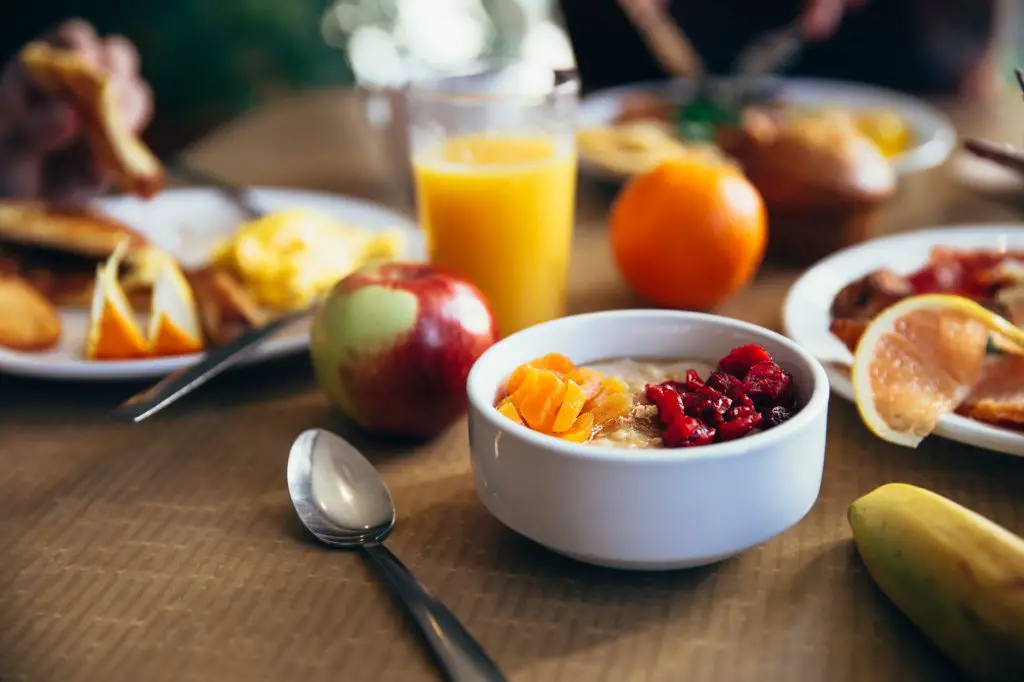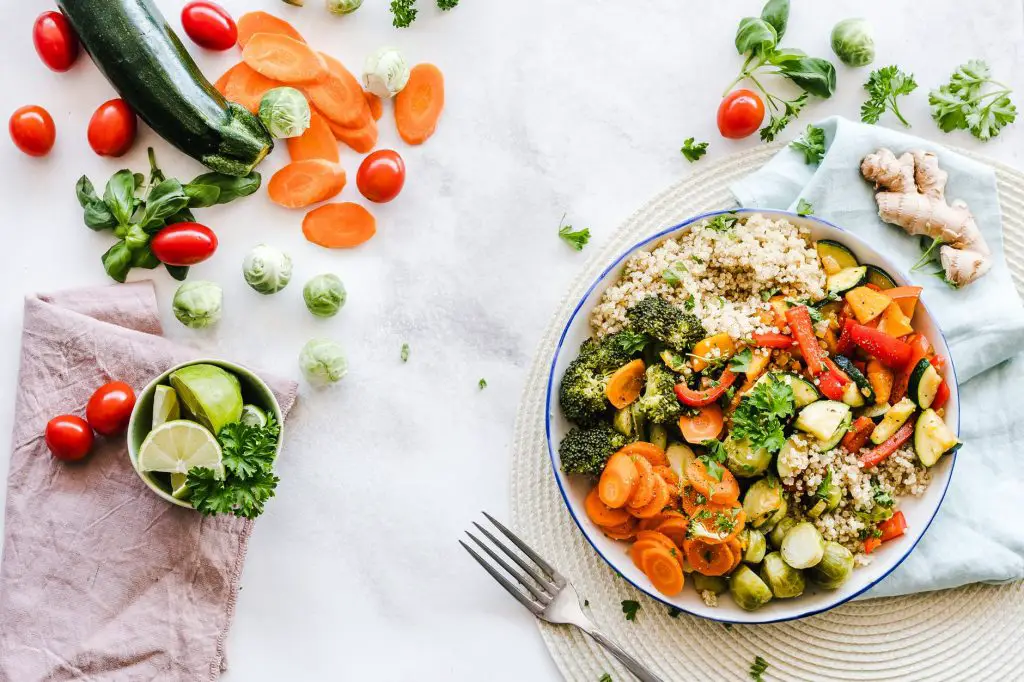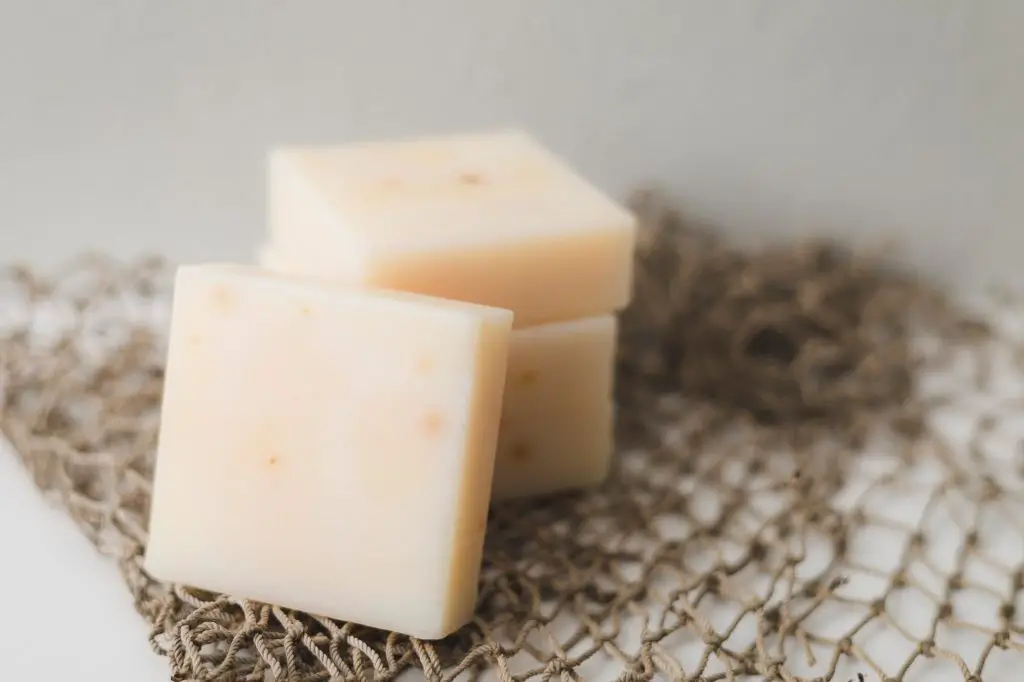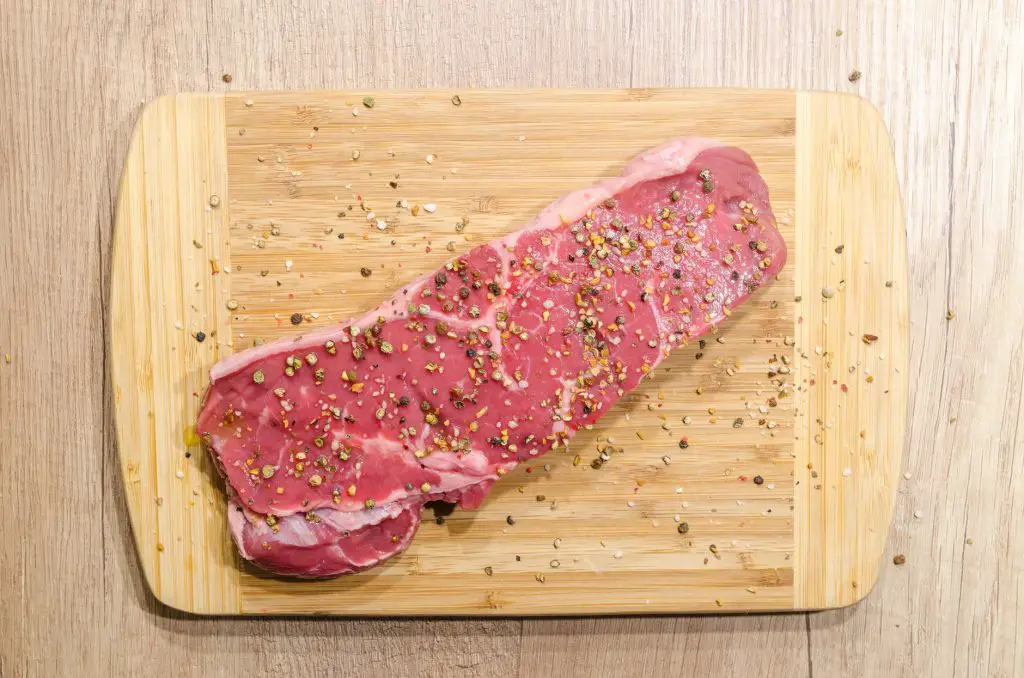Ketogenic is usually a term used to describe a low-carb, high-fat, adequate-protein diet.
This diet aims to allow people to get more calories from fat and protein and less from carbohydrates.
Doing so, you can easily cut back on easily digestible carbs, such as Soda, sugar, white bread, and pastries which promote weight loss.
But, many people are wondering how to gain muscle on keto diet? Or, does going low-carb always mean muscle loss?
When it comes to the connection between the keto diet and muscle loss, findings from various studies might surprise you.
Keep reading.

The Keto Diet Works in a Simple Way
When you consume less than 50 grams of carbohydrates every day, your body will ultimately run out of fuel or blood sugar.
This usually lasts for up to 4 days, after which you will start to break down fat and protein for energy. Hence, you will lose weight.
This is known as ketosis which results in a buildup of acids called ketones within the body.
Can You Gain Muscle on Keto?
Contrary to a misconception that you need lots of carbs to build muscles. Keto diet, which comprises of fat and protein, can actually help you increase strength and build muscles as you limit your fat gain.
While keto can help you gain muscle, it is not an overnight process.
You need to switch from using carbs as fuel to using fat instead, a situation known as “keto-adaptation”.
This means that your efforts will drop for some days during this transitional period.
So, can you gain muscle on keto? The short answer is yes, but your strength will decrease during the transitional period.

This is because when you begin the keto diet, you will not be able to exercise with the same intensity as before when you were eating carbs.
The drop in strength occurs as your body switches from breaking down glucose for fuel to breaking down fat into ketones.
However, one of the main concerns of using keto for muscle building is that high consumption of protein can drive you out of ketosis.
This can happen through the process known as gluconeogenesis, which implies the phenomenon where your body turns surplus protein into glucose.
And, the presence of glucose in your bloodstream will stop your body from producing ketones.
Regardless, your body and brain require glucose to function. So even when you are on a keto diet, you need enough glucose to nourish your cells, especially brain cells.
Want maximum stamina, increased strength and more lean muscle mass? Check our favorite supplements that helped more than +500,000 people achieve their body goals quickly!
How To Lose Fat and Build Muscle on Keto?
To lose fat and build muscle on keto, you need to limit your carbohydrates consumption to just 50 grams or less per day.
This is enough carbs for your body to turn it into glucose to amplify your workouts.
By limiting your carb intake, your body will use the small quantities of carbs and you will remain in ketosis.
Also, experts recommend drinking a lot of water, as this prevents you from eating mindlessly. Staying hydrated also makes you feel energetic all the time.
The Best Way To Gain Muscle on Keto
The thing about keto is that it will not work if not done properly. Below we have listed the best ways on how to gain muscle on keto diet:
1. Understand Your Calorie Requirement

As we mentioned earlier, your body still needs a certain amount of calories to be able to function properly.
So, it is crucial to understand the right amount you need to consume per day.
Several factors will determine the number of calories you will need to gain muscles, including your weight, sex, levels of activity, and even your daily lifestyle.
However, the number of calories you consume per day should allow you to maintain the same weight.
To do this, make sure to weigh yourself for at least twice a week, as well as tracking your food consumption over the week.
If you don’t see any change to the scale then, you are maintaining your weight.
When you are using keto for muscle building, it is advisable to increase your calorie consumption by 15 percent above your normal maintenance.
This means if your maintenance calorie intake is 2,000 daily, make sure to eat 2,300 to gain muscle on a keto diet.
2. Track Your Carbohydrates Consumption

You need a lot of carbs if you want to build muscle. However, if you want to stay in your ketosis, you need to limit the number of carbs you eat.
To ensure you stay on ketosis, make sure you restrict your carb intake to less than 50 grams per day.
Limiting your carbs for muscle building can be essential.
This strategy is called a targeted keto diet – consuming your daily required carbs around your workouts to enhance your exercise performance.
3. Eat a Lot of Protein

Muscle building diet has always comprised a large percent protein.
So, if you’re wondering how to gain muscle on keto diet? Protein needs to be on your list.
The reason for this is that it is the main foundation of muscles. Hence, you need to consume more protein than you break down through natural processes when building muscles.
Many experts suggest between 0.7 to 0.9 grams of protein for every pound of body weight is the ideal ratio for muscle building. That is about 1.6 to 2.0 grams per kilogram.
However, there is a question mark among individuals on a keto diet about eating too much protein as it can encourage the body to use gluconeogenesis.
This is a natural process in which amino acids are turned into sugar from protein, which could kick you out of ketosis.
But researchers have found that people can consume up to one gram of protein per pound of their body weight and still stay in ketosis.
4. Increase Your Fat Consumption

For you to build muscle on a keto diet, you need to monitor your fat intake closely.
This is because fat is the primary source of fuel for the body when you reduce your carb intake and are in ketosis.
Fat, alongside carbs and protein, should comprise your diet, so after accounting for the latter two, fat should make up the remaining part.
Protein and carbs supply 4 calories per gram of consumption, while fat supplies up to 9 for every gram.
Once you have subtracted your carbs and protein requirements for your daily calories, divide the final figure by 9 to find out your daily fat needs.
5. Do Resistance Training Regularly

Aside from nutrition, resistance training is also important to build muscle on keto.
This training basically involves building strength and endurance while gaining muscle mass.
Many fitness experts recommend at least doing resistance training twice a week for significant muscle growth.
Consider mixing up exercises such as bench presses, squats, pushups, and pull-ups with your weekly resistance training to enhance muscle growth.
6. Use Supplements if Necessary

Though supplements are not needed when trying to build muscles on keto, they might speed up your journey
Take this short quiz to find out which supplement is the best for you and your individual goals – This works for both men and women!
This is true especially if you are struggling to achieve your daily protein requirements.
But there is a problem. Some supplements such as protein powders contain some levels of carbs, so you will need to count those carbs in your daily carb intake to ensure your body stays in ketosis.
It is also safe to use creatine monohydrate as a supplement since fitness experts have found that it can help enhance gym performance, resulting in muscle gain.
So, can you build muscle without carbs? As we mentioned earlier in this article, you don’t need carbs to build muscle.
Keto diet is the best alternative for building muscles without consuming a lot of carbohydrates.
7. Treat Keto as a Lifestyle

Keto doesn’t mean that you take too much away to get a quick result.
Instead, you’re slowly transitioning into something that you can healthfully sustain for the long term.
This means accepting that you won’t be in ketosis every single day forever.
It means allowing yourself to enjoy a few desserts when you’re on vacation or for a special occasion.
You can just wake up the next morning and go back to the style of keto that works for you and your body consistently.
Low Carb Diet For Muscle Gain
While you can build muscles on low carbs, you may be wondering: “How low is low carbs for muscle building? “
There is no clear definition of low-carb and the safe quantity depends on your goals as well as the intensity of the exercises you take.
Low carb is different from keto. Because, in the keto diet, you are essentially eliminating almost the entire carb in your meals to allow your body to enter the ketosis state.
Low carbs diet also comprises plenty of proteins while keto concentrates mainly on consuming fats, which normally takes about 70 percent of the entire diet.
So, how do you plan for a low carb diet for muscle gain?
A low carb diet focuses on limiting appetite and suppresses your carb consumption. Due to this, you should focus on eating the right foods.
Keto Diet For Fat Loss
Here are some of the recommended keto diets for fat loss:
Low Carb Veggies

Low carb vegetables are low in carbs and calories but packed with numerous nutrients such as vitamin C and other minerals.
Vegetables also contain a good amount of fiber that your body doesn’t break down and absorb like other carbs.
For this reason, be sure to check their digestible carb count, which you can get by subtracting fiber from the total number of carbs.
The net carbs in low carb veggies range from 1 to 8 grams per cup.
Seafood

Seafood-based foods are usually keto-friendly, including fish, shellfish, and salmon.
Fish like salmon and tuna have high contents of B vitamins, selenium, and potassium, but carb-free.
Different types of shellfish have varying levels of carbs. For example, shrimps and some crabs are absolutely carb-free while other shellfish contain carbs.
Cheese

There are many types of cheese, and all of them are low carb and high in fat, which is perfect for ketosis
For example, 28 grams of cheddar cheese provides about one gram of carbs as well as 7 grams of protein and some calcium.
Cheese has conjugated linoleic acid, which is a type of fat that has been connected to fat loss.
Also, it has been found that eating cheese regularly can help prevent the loss of muscle mass as well as strength, especially when one is aging.
Meat and Poultry

Fresh meat and poultry contain zero carbs and are packed with B vitamins and other minerals such as selenium, potassium, and zinc.
They also provide a decent amount of protein to help you preserve muscle mass when on a low-carb diet.
Meat and poultry are keto-friendly foods and usually included in the low carb diet for muscle gain.
Coconut Oil

Coconut oil is also one of the essential components of a keto diet. It is a common food for anyone seeking for how to gain muscle on keto diet.
A certain study on men who ate two teaspoons of coconut oil every day lost about an inch from their waistlines without altering their diet.
Avocados

Avocados are perfect for your keto diet and incredibly healthy.
Though 100 grams of avocado contains 9 grams of carbs, 7 of them are fiber, meaning its net carb is only 2 grams.
Avocados have high levels of vitamins and other essential minerals that make them perfect food for keto diet for fat loss.
These fruits can also help enhance cholesterol levels.
Cottage Cheese and Plain Greek Yogurt

Though cottage cheese and plain Greek yogurt contain some levels of carbs, they are still perfect for a keto diet.
These two options have been found to suppress appetite and enhance the feeling of fullness.
Final Thoughts – How to Gain Muscle On Keto Diet?
It is absolutely possible to build muscle on a ketogenic diet using a low carb high-fat formula. Some fats have been found to help individuals lose fats easily.
When looking to build muscles with a keto diet, the most important things are to keep count your daily carbs intake and consume plenty of fat and proteins.
We hope this article about how to gain muscle on keto diet cleared some of your misconceptions about this way of eating and its connection with muscle building.
Want maximum stamina, increased strength and more lean muscle mass? Check our favorite supplements that helped more than +500,000 people achieve their body goals quickly!


